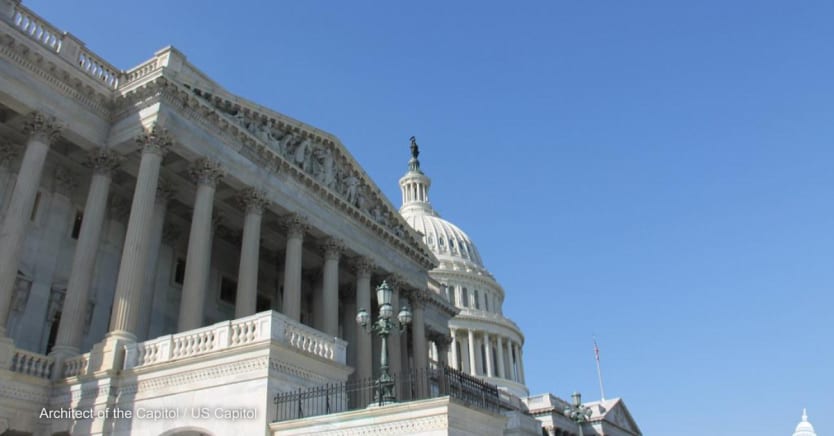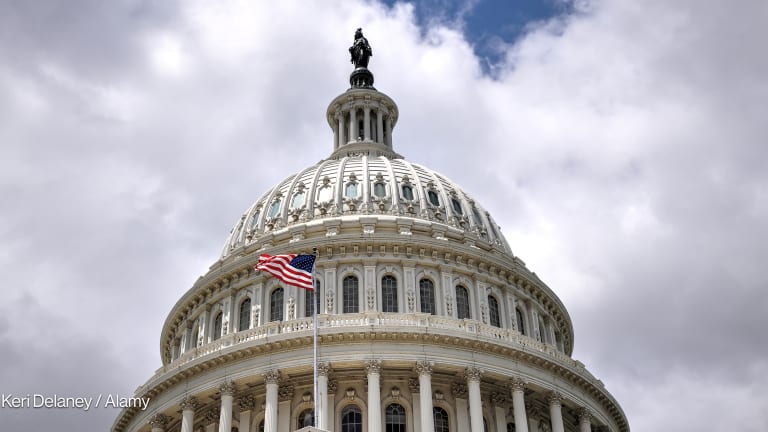
Two U.S. House representatives on Thursday introduced their version of a bill that they said would free up more than $140 billion in charitable gifts by limiting how long philanthropists can keep their money in donor-advised funds, or DAFS, which currently have no payout deadlines.
$120B sits in donor-advised funds. How can donors 'finish the job'?
Donor-advised funds are an untapped fundraising opportunity, says David Risher, CEO of Worldreader. As the pandemic forces many nonprofits to close their doors, #HalfMyDAF is one of several calls for DAF holders to give now, when the need is greatest.
House representatives Chellie Pingree, a Democrat from Maine, and Tom Reed, a Republican from New York, on Thursday introduced the House version of the Accelerating Charitable Efforts Act. The bill was first introduced in the U.S. Senate last year and has divided the philanthropy sector by proposing to put caps on how long money can be held in donor-advised funds. The Senate bill has not yet been approved by a committee, which is required for it to move forward for passage by the House or Senate.
DAFS are private accounts where individuals can deposit charitable contributions over time. They are often managed by financial firms or by community foundations. Current U.S. law allows DAF holders to receive an immediate tax break when they set up the account, but there are no deadlines for them to pay out the money — meaning the funds may never actually reach charities. An estimated $159 billion is currently held in the funds, according to recent data from the National Philanthropic Trust.
Like its companion bill in the Senate, the House legislation would stipulate that upfront tax benefits for the donors be contingent upon the DAF distributing the funds to charities within 15 years of donation. It also includes a carve out for donors who don’t plan to meet the payout requirement within 15 years to still receive upfront capital gains and estate tax benefits if their DAF money was distributed within 50 years of donation.
Additionally, it includes a tax incentive for private foundations to increase their annual payouts from the 5% minimum required by federal law to 7%. It would bar foundations from meeting payout requirements through administrative expenses for a donor’s family, such as salaries or benefits, and prevent them from meeting the requirements through donations to DAFs.
The Initiative to Accelerate Charitable Giving — a coalition of philanthropies, individual donors, and academics formed in 2020 — said in a statement that it was “pleased that policymakers continue to seek a legislative solution to restore the connection between charitable tax benefits and direct contributions to charities.”
Global Citizen, a member of the coalition, also talked about the potential global impacts the bill could have.
“If we are to meet the U.N. Sustainable Development Goals — and end world poverty — we have to look past just what governments can do. A good starting point is making sure that money earmarked for charitable causes by the wealthiest Americans actually reaches working charities,” Global Citizen said in a separate statement posted on IACG’s website.
However, others in the sector, such as the Council on Foundations, a trade association representing philanthropies, have come out in opposition to the proposed DAF restrictions. Among their reasons for not supporting the bill is the concern that it could dissuade some would-be donors from giving to charities at all.
Search for articles
Most Read
- 1
- 2
- 3
- 4
- 5








